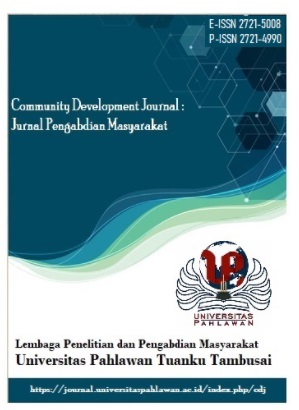THE EFFICACY OF WRITTEN CORRECTIVE FEEDBACK IN IMPROVING ENGLISH FOREIGN LANGUAGE UNIVERSITY STUDENTS’ WRITING
DOI:
https://doi.org/10.31004/jrpp.v8i1.43109Keywords:
Written Corrective Feedback, English As A Foreign Language, Writing Proficiency, Student Perceptions, Personalized Feedback.Abstract
This study investigates the efficacy of written corrective feedback (WCF) in enhancing the writing skills of university students learning English as a Foreign Language (EFL). The study aims to determine the overall effectiveness of WCF, identify the most beneficial types, and explore students' perceptions and attitudes towards receiving WCF. Existing research predominantly focuses on short-term impacts, neglecting long-term effects and individual differences such as learning styles and motivation, particularly in non-Western educational settings. Addressing these gaps could lead to more effective and personalized feedback strategies. The study employs a survey design to collect data from sixth-semester students in the Scientific Writing class at Muhammadiyah University of Bengkulu. Participants were selected using purposive sampling. The questionnaire, developed through a thorough literature review and expert consultations, was divided into five sections to ensure comprehensiveness and relevance. The findings indicate that students perceive WCF as effective in improving various aspects of their writing skills, particularly appreciating clear and specific feedback. Despite some challenges such as variability in feedback frequency and individual differences, students reported high satisfaction with the detailed and constructive nature of the feedback. The study concludes that WCF significantly enhances EFL students' writing proficiency, emphasizing the importance of personalized, timely, and accessible feedback. Future research should explore the long-term effects of WCF and the potential of technology in delivering effective feedback.References
Andika, W. D., Utami, F., Sumarni, S., & Harini, B. (2022). Keterampilan Penting Sebelum Anak Siap Menulis. Jurnal Obsesi: Jurnal Pendidikan Anak Usia Dini, 6(4), 2519-2532.
Çelik, S. (2020). Building Critical Academic Writing Skills: The Impact of Instructor Feedback on Turkish ELT Graduate Students. Tesl-Ej, 24(3), n3.
Durga, S. S., & Rao, C. S. (2018). Developing students' writing skills in English-A process approach. Journal for Research Scholars and Professionals of English Language Teaching, 6(2), 1-5.
Ellis, R. (2019). Theoretical Perspectives on Feedback. Studies in Second Language Acquisition, 41(3), 423-448.
Fahmi, S., & Rachmijati, C. (2021). Improving students’ writing skill using grammaly application for second grade in senior high school. PROJECT (Professional Journal of English Education), 4(1), 69.
Ferris, D. R. (2019). Teaching L2 Composition: Purpose, Process, and Practice. Routledge
Groves, R. M., Fowler Jr, F. J., Couper, M. P., Lepkowski, J. M., Singer, E., & Tourangeau, R. (2019). Survey Methodology. Wiley Series in Survey Methodology. Wiley.
Karim, K., & Nassaji, H. (2019). The effects of written corrective feedback: A critical synthesis of past and present research. Instructed Second Language Acquisition, 3(1).
Lee, I. (2019). Teachers’ frequently asked questions about focused written corrective feedback. TESOL Journal, 10(3), e00427.
Li, S. (2010). The effectiveness of corrective feedback in SLA: A meta‐analysis. Language learning, 60(2), 309-365. https://doi.org/10.1111/j.1467-9922.2010.00561.x
Li, S., & Vuono, A. (2019). Twenty-five years of research on oral and written corrective feedback in System. System, 84, 93-109. https://doi.org/10.1016/j.system.2019.05.006
Manchón, R. M., & Polio, C. (2021). L2 writing and language learning. In The Routledge Handbook of Second Language Acquisition and Writing (pp. 1-6). Routledge.
Nasser, S. M. (2018). Iraqi EFL students’ difficulties in writing composition: An experimental study (University of Baghdad). International Journal of English Linguistics, 9(1), 178-184.
Palinkas, L. A., Horwitz, S. M., Green, C. A., Wisdom, J. P., Duan, N., & Hoagwood, K. (2019). Purposeful Sampling for Qualitative Data Collection and Analysis in Mixed Method Implementation Research. Administration and Policy in Mental Health and Mental Health Services Research, 42(5), 533-544. https://doi.org/10.1007/s10488-013-0528-y
Sari, D. M. M. (2019). THE EFFECTS OF CORRECTIVE FEEDBACK TO THE STUDENTS’GRAMMATICAL CONSTRUCTION ON PARAGRAPH WRITING CLASS. Journal of English Educational Study (JEES), 2(2), 122-131. https://doi.org/10.31932/jees.v2i2.520
Selvaraj, M., & Aziz, A. A. (2019). Systematic review: Approaches in teaching writing skill in ESL classrooms. International Journal of Academic Research in Progressive Education and Development, 8(4), 450-473. http://dx.doi.org/10.6007/IJARPED/v8-i4/6564
Simamora, D. ., Napitupulu, F. D. ., & Silitonga, H. . (2024). THE EFFECT OF CHATGPT APPLICATION TOWARDS STUDENTS’ ABILITY IN WRITING EXPOSITION TEXT AT THE EIGHT GRADE OF SMP NEGERI 37 MEDAN. Jurnal Review Pendidikan Dan Pengajaran (JRPP), 7(2), 5037–5041. https://doi.org/10.31004/jrpp.v7i2.2741
Yousefi, M., & Nassaji, H. (2021). Corrective Feedback in Second Language Pragmatics: A Review of Research. Tesl-Ej, 25(1), n1.
Zhang, Z. V., & Hyland, K. (2018). Student engagement with teacher and automated feedback on L2 writing. Assessing Writing, 36, 90-102. https://doi.org/10.1016/j.asw.2018.02.004
Downloads
Published
How to Cite
Issue
Section
License
Copyright (c) 2025 Revo Aditama Febrian, Ivan Achmad Nurcholis

This work is licensed under a Creative Commons Attribution-ShareAlike 4.0 International License.






